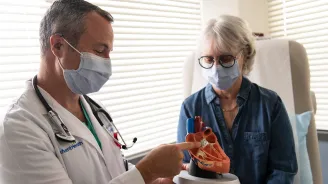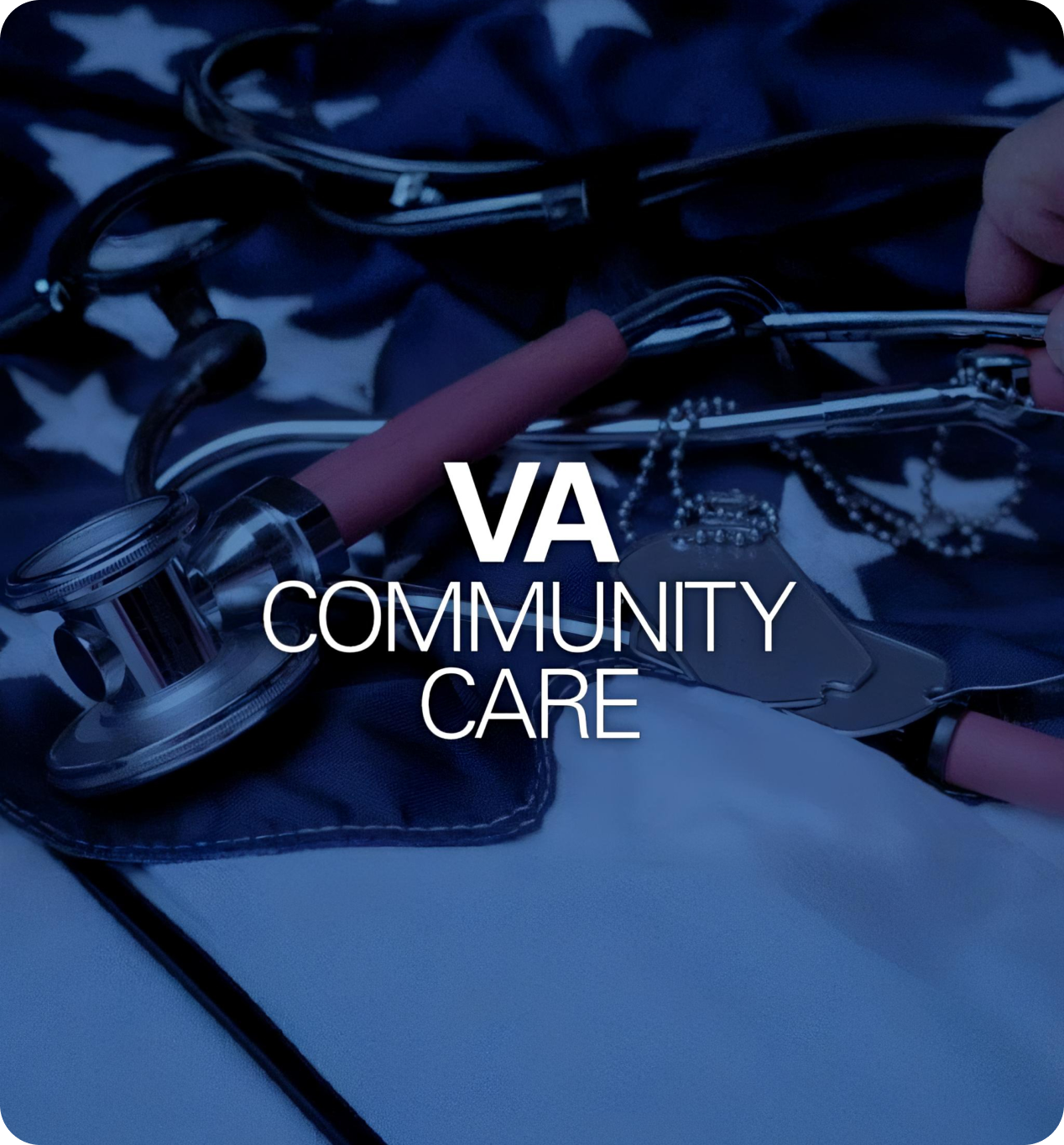Join
The VA Community Care Network
A Guide for Advanced Heart Failure and Transplant Cardiology Specialists
In California, independent Physician Assistants (PAs) can bill the Department of Veterans Affairs (VA) for services provided to veterans, but it’s essential to understand the regulations surrounding this process.
Welcome to Veterans Desk , your trusted resource for connecting dedicated healthcare professionals with opportunities to serve our nation’s veterans. This guide is tailored for cardiologists who specialize in advanced heart failure and transplant care. Whether you manage end-stage heart failure, ventricular assist devices (VADs), or heart transplant referrals, this page provides everything you need to enroll in the VA Community Care Network (CCN).

Step-by-Step Enrollment in the VA CCN
Verify Your Credentials
- Hold an active state medical license.
- Provide board certification in Cardiology with subspecialty certification in Advanced Heart Failure and Transplant Cardiology.
- Veterans transitioning into civilian care should include DD214 documentation.
Prepare Required Documents
- Current CV or resume.
- Proof of active licenses and certifications.
- Professional liability (malpractice) insurance.
- Completed and signed W-9 form.
- References from clinical or collaborative care settings (if available).
- Veterans transitioning into civilian care should include DD214 documentation.
Submit Your Application
Apply through the appropriate network portal:
- Optum VA Community Care Network (Regions 1–3)
- TriWest Healthcare Alliance (Regions 4–5)
Complete Required Training
VA and CCN training may include:
- VA HIPAA and privacy regulations.
- Cardiac-specific care coordination and EHR systems.
Access training modules via the VA Provider Education and Training site.
Credentialing & Facility Review
- Credentialing includes license verification, background checks, and practice review.
- Facility inspections may be required for compliance with VA accessibility and safety standards.
Credentialing & Facility Review
- Credentialing includes license verification, background checks, and practice review.
- Facility inspections may be required for compliance with VA accessibility and safety standards.

Why Advanced Heart Failure and Transplant Cardiology Specialists Matter to Veterans
Veterans experience disproportionately high rates of cardiovascular disease, often progressing to advanced heart failure. Your expertise in managing complex cardiac conditions, providing transplant evaluations, and supporting continuity of care is essential to veteran health outcomes and survival.
As a specialist in the VA CCN, your role may include:
- Evaluating and managing patients with end-stage heart failure.
- Overseeing ventricular assist device (VAD) therapy and monitoring.
- Coordinating with VA and non-VA transplant centers for referrals and follow-ups.
- Supporting telemedicine-based cardiac care and remote monitoring.


Key Benefits of Joining the VA CCN
- Serve a High-Need Population: Work with veterans managing complex, late-stage cardiac conditions where your expertise directly impacts life expectancy and quality of life.
- Collaborate Across Systems: Coordinate with VA and non-VA transplant programs to ensure seamless care transitions.
- Support for Telecardiology: VA infrastructure enables remote VAD monitoring, virtual follow-ups, and expanded access to care.
- Competitive Reimbursement: Receive fair compensation for high-complexity services, including device management and transplant evaluations.
- Contribute to Research: Opportunities exist to participate in VA-supported heart failure and transplant studies.

Bridging the Gap for Veterans

Educational Support & Professional Growth
- Participate in VA-sponsored CME opportunities, including courses on heart failure therapies and transplant care.
- Collaborate with VA researchers and contribute to ongoing cardiovascular studies.
- Explore VA loan repayment programs for eligible providers.

Transitioning from Military Service
- Military cardiologists should ensure their credentials align with civilian licensing requirements.
- Use expedited licensing pathways for transitioning service members when available.
- Highlight your deployment-related experience in complex cardiovascular care during your application.
Frequently Asked Questions (FAQs)
Does the VA reimburse for transplant-related services?
Yes. The VA reimburses for pre-transplant evaluations, post-transplant follow-ups, and care coordination with transplant centers.

